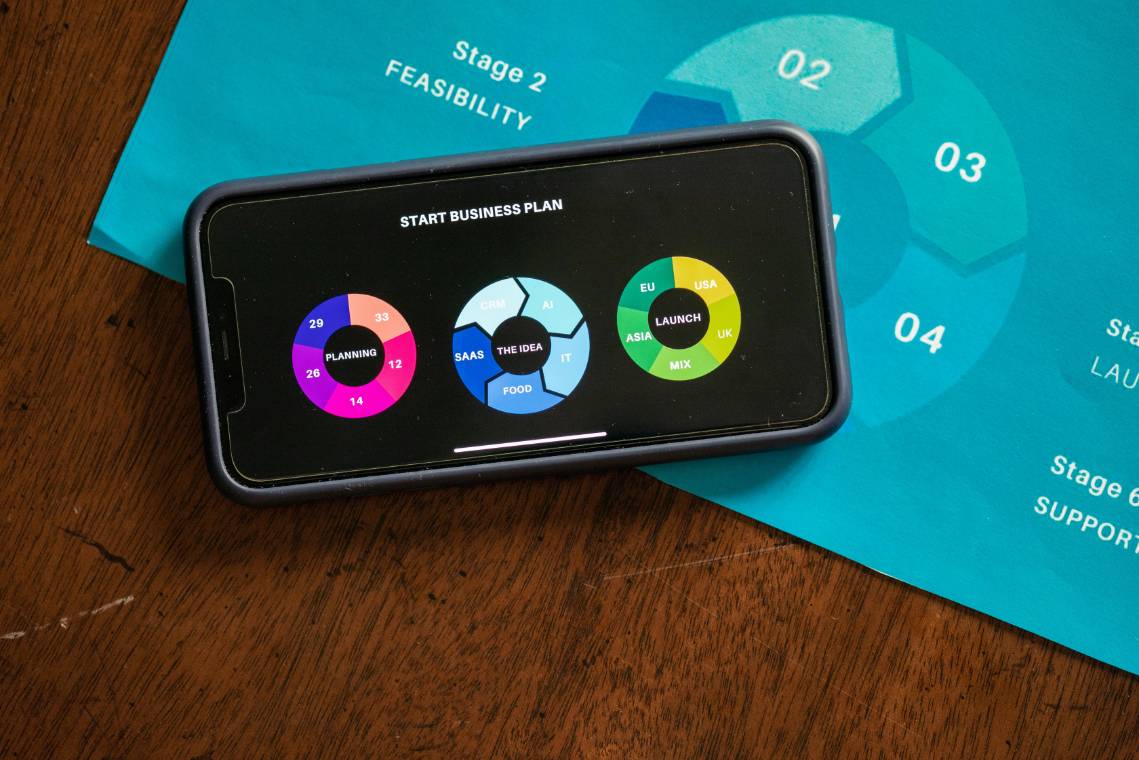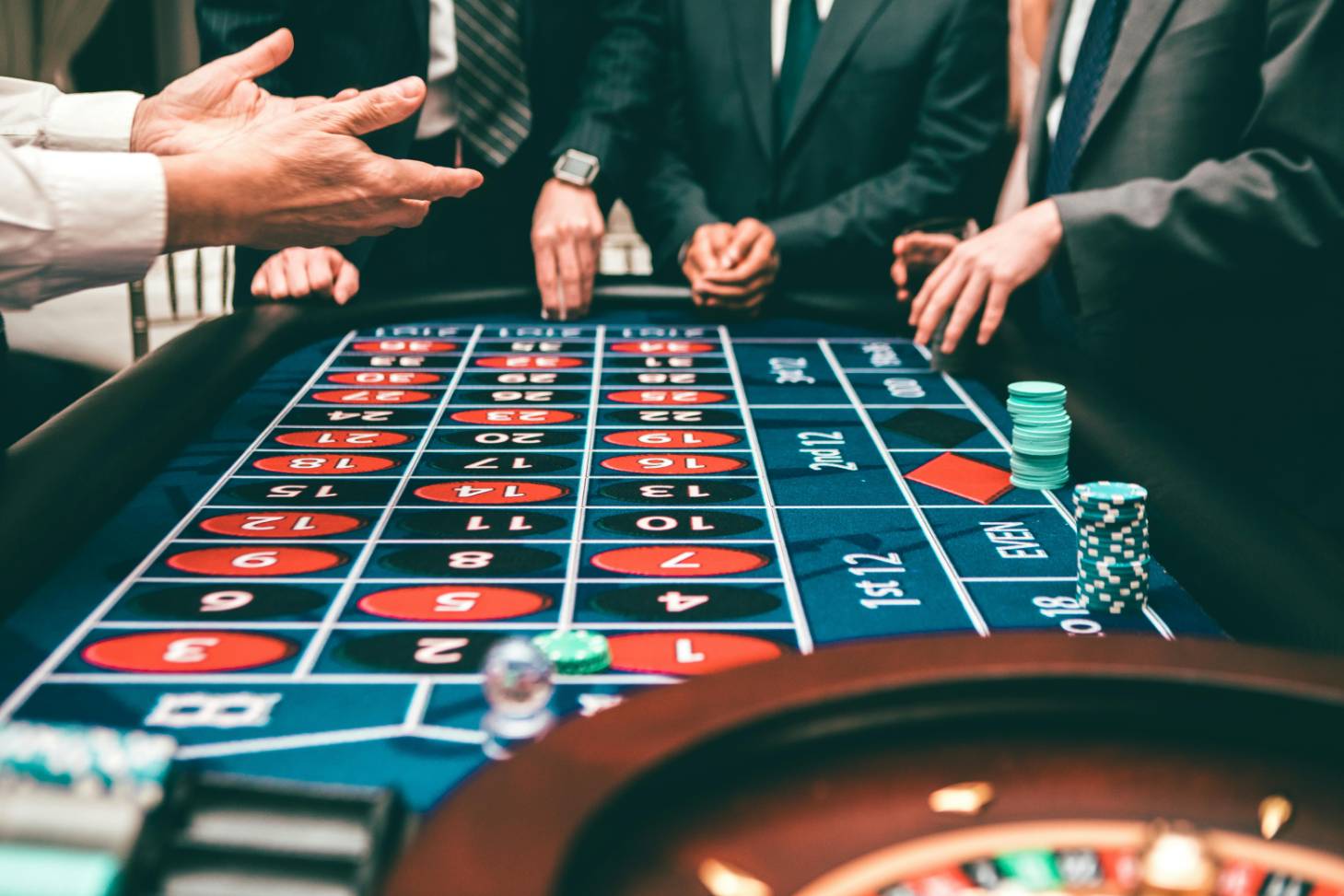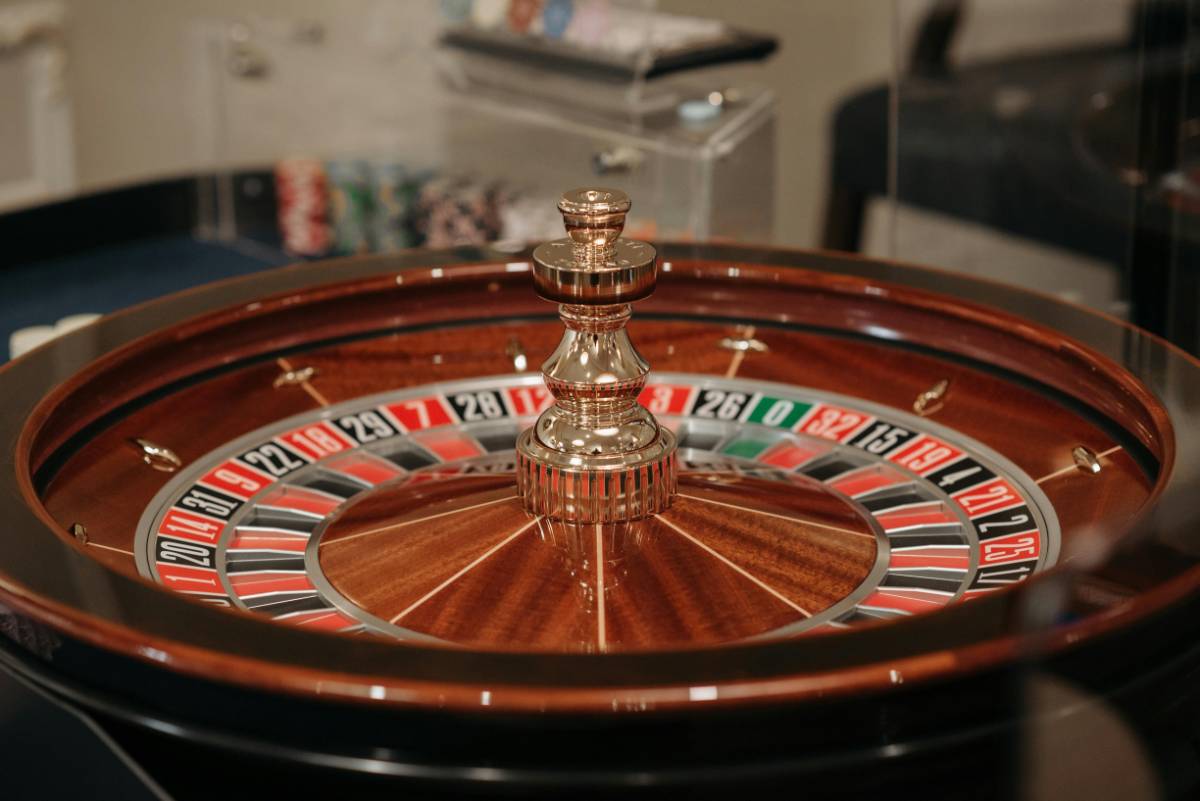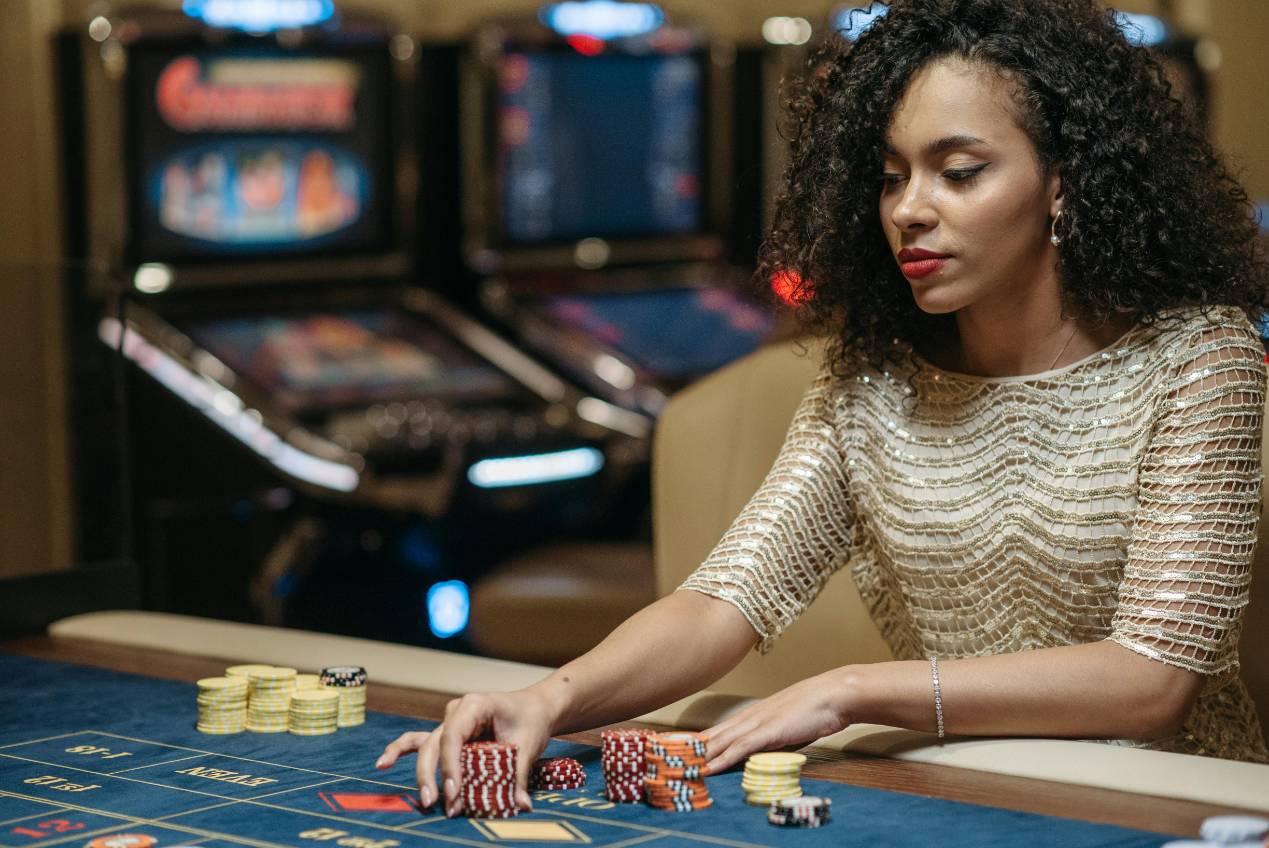
***Why Mobile Apps Are So Popular
By Rahul Sharma · 05 Oct 2025
Sports betting in the United States has undergone a seismic transformation over the past few years, and at the center of this revolution are mobile betting apps. Once confined to casinos and sportsbooks in places like Las Vegas, betting is now accessible to millions of Americans at the tap of a button. These apps have completely reshaped how people gamble, making betting faster, more convenient, and more engaging than ever before.
The Rise of Mobile Sports BettingThe 2018 Supreme Court decision to strike down PASPA opened the floodgates for legalized sports betting across the U.S. As states began regulating the market, mobile betting apps quickly emerged as the dominant platform. Companies like DraftKings, FanDuel, BetMGM, and Caesars Sportsbook capitalized on the opportunity, creating user-friendly apps that put entire sportsbooks in the palms of players’ hands.
Why Mobile Apps Are So PopularConvenience is the biggest driver of mobile betting’s success. Bettors no longer need to travel to a casino or retail sportsbook—they can place wagers from home, at a sports bar, or even inside stadiums. These apps offer a wide range of features, including real-time odds, live betting, cash-out options, and in-depth statistics. The ability to bet instantly while watching a game has turned casual fans into active participants.
One of the most significant innovations mobile betting apps have introduced is live betting. Fans can now place wagers as games unfold, predicting the next touchdown, the number of points in a quarter, or even the outcome of a single play. This has made watching sports far more interactive, as bettors stay engaged from start to finish. The dynamic nature of in-game wagering has fueled explosive growth in betting volume across the U.S.
The competitive nature of the U.S. sports betting market has led to aggressive promotions by betting apps. Welcome bonuses, risk-free bets, and deposit matches have become standard offerings to attract new customers. These incentives, combined with loyalty rewards and ongoing promotions, keep players coming back. For many users, the abundance of deals is one of the biggest perks of betting through mobile apps rather than traditional sportsbooks.
The Integration of Media and BettingSports networks and media companies have also jumped on the mobile betting trend. Many broadcasts now feature live odds and betting analysis, often provided directly by sportsbook partners. Apps integrate with fantasy sports platforms and streaming services, creating a seamless ecosystem where sports entertainment and betting coexist. This integration has blurred the line between watching a game and betting on it, fueling even greater engagement.
The Economic ImpactMobile betting apps have generated billions of dollars in revenue for operators and significant tax revenue for states. Cities with legal sports betting have seen tourism and casino activity increase, while local businesses benefit from fans gathering to watch and wager on games. The financial impact underscores why so many states have rushed to legalize and regulate mobile betting.
Challenges and ConcernsDespite the success, mobile betting apps face challenges. Problem gambling, underage betting, and concerns about data security remain pressing issues. Regulators and operators are working to promote responsible gaming through tools like deposit limits, self-exclusion programs, and awareness campaigns. High-profile controversies, including athletes suspended for betting violations, show the fine balance between expanding the industry and protecting its integrity.
The Future of Mobile Betting in the U.S.As technology continues to advance, mobile betting apps will only become more immersive. Expect innovations such as virtual reality sportsbooks, AI-powered betting recommendations, and even greater integration with live streaming. With more states moving toward legalization, the reach of mobile apps is set to expand even further, making them the centerpiece of the U.S. betting industry for years to come.
Mobile betting apps have not just changed the way Americans gamble—they’ve redefined it. By combining convenience, technology, and entertainment, these apps dominate the U.S. betting market and continue to grow at a rapid pace. From live betting innovations to economic benefits for states, their impact is undeniable. As legalization spreads and technology evolves, mobile betting apps will remain the driving force behind America’s gambling future.
Subscribe to our newsletter to get our newest articles instantly!

Senior Contributor
Rahul Sharma is passionate about impactful storytelling. With a unique voice and deep insights, they turn everyday stories into compelling reads that resonate and inform.
Read Full Bio
The NFL isn’t just the most popular sport in the United States—it’s also the centerpiece of the country’s sports betting industry. From Super Bowl wagers to weekly fantasy matchups, football has transformed into America’s biggest gambling market. With billions of dollars wagered each season, the NFL has become a powerful driver of both legal and illegal betting, shaping how fans engage with the game like never before.***A Billion-Dollar IndustryEvery NFL season, Americans wager staggering amounts of money on football games. According to industry reports, the Super Bowl alone attracts billions in bets each year, making it the single most heavily bet-on sporting event in the United States. Since the Supreme Court’s 2018 decision to lift the federal ban on sports betting, states have embraced legalization, driving the NFL betting market into unprecedented territory.***The Supreme Court Ruling and Legalization BoomIn 2018, the U.S. Supreme Court overturned the Professional and Amateur Sports Protection Act (PASPA), which had restricted sports betting to just a few states like Nevada. The ruling unleashed a wave of legalization across the country, with dozens of states opening regulated markets. This created massive opportunities for sportsbooks, mobile apps, and casinos to capitalize on the NFL’s immense popularity. What was once confined to Las Vegas became accessible nationwide, from New Jersey to Colorado and beyond.***Why the NFL Is King of BettingThe NFL’s dominance in betting comes down to its structure and schedule. With just 17 regular-season games per team, each matchup carries enormous weight, driving fan engagement and betting action. Point spreads, over/under totals, and player prop bets add layers of excitement for gamblers. Combine this with the league’s huge TV audience and fantasy football culture, and it’s no surprise the NFL has become the ultimate betting market.***The Rise of Mobile and Online BettingMobile betting apps have revolutionized how fans wager on NFL games. Platforms like DraftKings, FanDuel, BetMGM, and Caesars Sportsbook now allow millions of Americans to bet instantly from their phones. Live betting—where odds shift throughout the game—has further increased fan engagement, letting users wager on everything from who will score the next touchdown to how many yards a quarterback will throw.***Super Bowl: The Crown Jewel of BettingNo event in U.S. sports compares to the Super Bowl when it comes to gambling. From traditional bets on the winner to quirky prop bets on the national anthem length or the color of the Gatorade dump, the Super Bowl attracts casual and serious bettors alike. The cultural spectacle of the event ensures that even non-football fans get involved, making it a nationwide betting phenomenon.***Fantasy Football’s Role in GrowthLong before sports betting was legalized, fantasy football introduced millions of Americans to the concept of wagering on player performance. Fantasy leagues, daily fantasy sports (DFS), and online competitions blurred the line between fandom and betting, preparing the ground for the explosion of NFL wagering. Today, fantasy football remains a massive complement to sports betting, driving engagement every Sunday.***Economic Impact of NFL BettingThe NFL betting market generates billions in revenue for sportsbooks, tax dollars for states, and marketing opportunities for media companies. Sports networks now integrate betting odds into broadcasts, while casinos and sportsbooks partner directly with NFL teams and stadiums. The integration of gambling into the NFL economy is reshaping both sports and business in America.***The Challenges of NFL BettingDespite its growth, NFL betting comes with risks. Problem gambling, addiction, and concerns about game integrity remain hot topics. The league and regulators have introduced measures to promote responsible gambling and monitor betting activity. High-profile incidents, including suspensions of players for violating betting policies, highlight the fine line between entertainment and controversy in America’s biggest gambling market.***ConclusionBetting on the NFL is more than just a pastime—it’s a cultural phenomenon that defines modern sports engagement in the United States. From the Supreme Court ruling that opened the floodgates to the rise of mobile apps and the spectacle of the Super Bowl, NFL betting has grown into a billion-dollar industry. It reflects America’s love for football, risk-taking, and entertainment, cementing the NFL’s place as the undisputed king of sports gambling markets.
By Rajat Sen · 03 Oct 2025

Las Vegas, the world’s gambling capital, is home to countless games of chance, but few shine as brightly on the casino floor as American Roulette. With its iconic spinning wheel, the double zero, and the electrifying energy it generates at every spin, American Roulette has become more than just a table game—it’s a symbol of Las Vegas nightlife. But how did this specific version of roulette, with its unique design and rules, evolve into one of the most recognizable staples in Sin City? The answer lies in its fascinating history, profitability for casinos, and the unmatched excitement it brings to players.***The Origins of RouletteRoulette traces its roots back to 18th-century France, where inventor Blaise Pascal’s experiments with perpetual motion inadvertently inspired the earliest versions of the wheel. The word "roulette" itself means "little wheel" in French. When French settlers and immigrants brought the game across the Atlantic, it didn’t take long for it to catch on. By the 19th century, American gambling houses had embraced roulette but with a twist—adding the double zero (00) to the wheel. This seemingly small adjustment permanently distinguished American Roulette from its European counterpart.***Why the Double Zero MattersThe double zero is more than just an extra green pocket on the wheel—it represents the defining feature of American Roulette. While European Roulette offers 37 slots (0 through 36), American Roulette has 38 slots (0, 00, and 1–36). This difference slightly increases the house edge from about 2.7% in European Roulette to roughly 5.26% in American Roulette. For casinos, this higher edge made the game more profitable, while for players, the presence of the extra zero created a sense of added challenge and suspense. Over time, Las Vegas operators realized that this format perfectly balanced entertainment with profitability, ensuring its dominance on the casino floor.***American Roulette in Early Las VegasDuring the mid-20th century, when Las Vegas transformed from a small desert town into a glittering gambling paradise, casino owners needed games that could appeal to both seasoned gamblers and curious newcomers. American Roulette quickly stood out. Unlike poker or blackjack, which require skill and strategy, roulette offered simplicity: place a bet, watch the wheel spin, and anticipate the outcome. The colorful wheel, the rhythmic movement of the ball, and the variety of betting options—from red/black to single numbers—made it visually captivating. Casino managers often placed roulette tables near entrances to draw crowds in, turning the game into a magnet for excitement.***The Role of Glamour and HollywoodAmerican Roulette’s rise wasn’t just due to mathematics or casino strategy—it was also about image. In countless Hollywood films, roulette became the symbol of high-stakes gambling and elegance. Characters dressed in tuxedos or evening gowns would dramatically push chips onto the table, uttering phrases like "all on red" before the wheel spun. These glamorous depictions etched roulette into pop culture as the game of risk-takers, romantics, and dreamers. Las Vegas casinos embraced this portrayal, using roulette imagery in advertising and promotional campaigns to attract tourists eager to live out their own cinematic moment.***Modern-Day PopularityToday, American Roulette remains one of the most iconic and beloved table games in Las Vegas. Tourists from around the world flock to the city not just for slot machines or poker tournaments but also for the chance to test their luck on the wheel. Casinos continue to feature roulette prominently because it combines simplicity with sophistication. Players can choose between low-stakes bets like red/black or high-risk bets on single numbers, allowing everyone from casual gamblers to seasoned high rollers to participate. Modern innovations, such as electronic roulette terminals, live dealer streaming, and online casino versions, have further boosted its appeal, ensuring the tradition carries on even beyond physical casino floors.***Roulette as a Social ExperienceAnother reason American Roulette became a staple is its inherently social nature. Unlike solitary games such as video poker or certain slot machines, roulette brings groups of people together around a single table. The suspense of the spinning ball, the cheers when numbers hit, and the communal tension make it one of the most interactive games in a casino. This social aspect aligns perfectly with the Las Vegas ethos of shared excitement, nightlife, and unforgettable entertainment.***ConclusionAmerican Roulette became a Las Vegas casino staple not by accident but by design. Its French origins gave it timeless charm, while the American adaptation with the double zero made it more profitable for casinos. Add in the glamour of Hollywood portrayals, the visual spectacle of the wheel, and the social nature of the game, and it’s easy to see why it endures as one of the most beloved attractions in Vegas. Today, whether in the buzzing atmosphere of the Strip or on digital platforms across the world, American Roulette continues to represent the thrill, risk, and glamour that define the spirit of Las Vegas.
By Stefen · 25 Sep 2025

Roulette has always held a special place in the world of gambling. Its iconic spinning wheel, the tension as the ball bounces, and the thrill of the outcome have captivated players for centuries. But in 2025, the American gambling market is seeing an exciting evolution: roulette has gone mobile in a massive way. Smartphones are now the primary device for millions of U.S. gamblers, and mobile roulette has become one of the fastest-growing segments in the industry. From live dealer games to app-based innovations, mobile roulette trends are redefining how Americans experience this timeless casino classic.***The Rise of Mobile Gambling in AmericaThe U.S. gambling market has experienced rapid digital growth since the Supreme Court’s landmark 2018 decision that allowed states to legalize sports betting and, by extension, expand into online casinos. By 2025, more than half of American states have legalized or are in the process of legalizing some form of online gambling. Mobile platforms now dominate, with over 70% of all online wagers being placed via smartphones and tablets. Roulette, being one of the most visually captivating and easy-to-understand games, has thrived in this shift. The portability of mobile devices allows players to spin the wheel anytime, anywhere—whether on a train, during a lunch break, or from the comfort of their living rooms. This convenience has made mobile roulette not just a trend but a permanent fixture in the American gambling market.***App-Centric Roulette PlatformsOne of the strongest trends in mobile roulette is the dominance of dedicated casino apps. Leading U.S. operators like BetMGM, Caesars, DraftKings, and FanDuel have invested heavily in creating mobile apps that prioritize seamless design, fast load times, and user-friendly interfaces. Unlike earlier web-based versions, these apps are built specifically for mobile devices, meaning graphics are optimized, navigation is intuitive, and betting is smoother. For roulette players, this translates into an engaging experience where placing bets, accessing live tables, and cashing out winnings happen with just a few taps. Some apps even include unique features like streak trackers, betting history analysis, and in-game statistics, giving American players more tools to strategize their gameplay.***Live Dealer Roulette on MobilePerhaps the biggest innovation reshaping mobile roulette is the explosion of live dealer games. American players have shown a clear preference for realism and interactivity, and live dealer roulette delivers both. Using high-definition streaming technology, players can join real-time games hosted by professional dealers, all from their mobile devices. The ability to chat with dealers and fellow players adds a social dimension that many gamblers crave. In 2025, most major U.S. online casinos now offer multiple live dealer roulette tables specifically optimized for mobile, with adjustable camera angles and streamlined interfaces. These tables replicate the atmosphere of a Las Vegas casino, making the experience immersive even when playing on a 6-inch screen.***Customization and PersonalizationAmerican gamblers increasingly expect personalized experiences, and mobile roulette platforms are responding. Many apps now allow players to customize their interface, from table themes and chip colors to background music. More advanced casinos are even integrating artificial intelligence (AI) to analyze betting habits and recommend specific roulette tables or strategies. For example, if a player frequently bets on red/black, the app might highlight tables with features or promotions tailored to that style. Personalization not only enhances player satisfaction but also builds loyalty, making mobile roulette more than just a game—it becomes a tailored experience.***Micro-Betting and Quick Play SessionsAnother major trend in mobile roulette is the rise of micro-betting and quick sessions. Unlike traditional casino visits that might last hours, mobile players often engage in shorter bursts of gameplay. Roulette is perfectly suited for this because each spin only takes a minute or two. Some apps now feature “quick spin” options, reducing downtime between rounds for players who want fast-paced action. Micro-bets, where players wager smaller amounts, are also gaining traction. This appeals to casual gamblers who enjoy the thrill of roulette without risking large sums of money. Together, these features have made mobile roulette highly adaptable to the on-the-go lifestyles of American players.***Integration with American Culture and EventsOne of the unique aspects of the American gambling market is how mobile casinos integrate roulette with cultural events and holidays. In 2025, many platforms offer themed roulette tables during holidays like Independence Day, Thanksgiving, or even the Super Bowl. For example, a July 4th roulette table might feature red, white, and blue designs, while Super Bowl-themed tables allow players to combine sports betting with roulette promotions. These cultural tie-ins make the game feel more relevant and exciting for U.S. players, strengthening its appeal.***Responsible Gambling Features on MobileWith the rapid growth of mobile gambling, responsible gaming has become a central issue. Leading U.S. operators now include built-in tools that allow roulette players to set deposit limits, time reminders, and even self-exclusion periods directly from their mobile devices. This reflects a broader commitment within the industry to promote safe play. In 2025, several states have introduced regulations requiring casinos to implement these features, ensuring that mobile roulette remains fun without leading to harmful behaviors. American players are increasingly aware of these tools and appreciate platforms that prioritize their well-being.***Technological Innovations Driving Mobile RouletteBeyond live dealer streaming, several cutting-edge technologies are shaping the future of mobile roulette in the U.S. Virtual reality (VR) and augmented reality (AR) are beginning to make their way into roulette platforms, allowing players to step into immersive digital casinos from their phones. Blockchain technology is also being integrated for secure, transparent transactions, while 5G connectivity ensures faster and smoother gameplay. Some platforms are experimenting with voice-activated betting, enabling players to place bets by speaking to their devices. These innovations are redefining what mobile roulette can be, moving it beyond a digital adaptation of a table game into an advanced, futuristic experience.***Differences Between American and European Mobile PlayersWhile roulette is a global game, the habits of American mobile players are distinct. U.S. players tend to prefer American Roulette with the double zero, partly due to its association with Las Vegas and its strong presence in brick-and-mortar casinos. European players, by contrast, often gravitate toward European Roulette with a single zero, which offers better odds. American players are also more likely to engage with promotional events, themed tables, and gamification features. This cultural difference has led many U.S. platforms to design roulette offerings specifically for American tastes, while still including European versions for variety.***The Future of Mobile Roulette in AmericaAs mobile gambling continues to dominate the U.S. market, roulette is poised to remain at the center of this growth. In the near future, we can expect even more integration of AI, VR, and AR, creating hyper-personalized and immersive mobile roulette environments. With more states expected to legalize online gambling, access will expand further, making mobile roulette available to millions more Americans. The combination of convenience, entertainment, and innovation ensures that roulette will not only survive in the digital age but thrive like never before.***ConclusionMobile roulette is no longer just an alternative to playing in physical casinos—it has become the primary way many Americans experience the game. Trends like live dealer integration, personalization, micro-betting, cultural tie-ins, and technological innovations are making it more exciting and accessible than ever. As the U.S. gambling market continues to evolve, mobile roulette will remain one of its most vibrant and dynamic segments, spinning its way into the future of American entertainment.
By Rajat Sen · 05 Oct 2025

Online casinos have revolutionized the way Americans gamble, shifting the culture of gaming from brick-and-mortar establishments to digital platforms. Once confined to the glitz of Las Vegas or the boardwalks of Atlantic City, gambling is now accessible with just a smartphone or computer. This transformation has not only changed how people play but also how gambling is perceived in the United States, influencing entertainment, regulation, and society as a whole.***The Rise of Online Gambling in the U.S.While online gambling gained popularity worldwide in the late 1990s, the U.S. initially struggled with legal restrictions. Many Americans turned to offshore platforms to play poker, blackjack, and slots. Over time, however, states began to embrace online gambling as a legitimate industry. Today, states like New Jersey, Michigan, Pennsylvania, and Delaware have fully legalized online casinos, creating a regulated environment that has drawn millions of players and billions in revenue.***Convenience and AccessibilityOne of the biggest impacts of online casinos is accessibility. Players no longer need to book a trip to Las Vegas or Atlantic City—they can enjoy slots, poker, and roulette from their living rooms. Mobile apps have made it even easier, allowing people to gamble during commutes, breaks, or from the comfort of home. This shift has broadened the gambling audience, appealing not only to seasoned gamblers but also to casual players who may never have visited a physical casino.***Cultural Shifts in Gambling PerceptionThe convenience of online gambling has changed how Americans view the pastime. Once considered a glamorous or risky activity tied to big cities and casinos, gambling is now seen as a more casual form of entertainment. Online platforms often resemble video games, with interactive graphics, bonuses, and community features that make gambling feel less intimidating. This shift has blurred the line between traditional gaming and online gambling, embedding it deeper into everyday culture.***The Role of Online Poker and the "Poker Boom"A major milestone in online gambling culture came in the early 2000s with the rise of online poker. The 2003 World Series of Poker win by Chris Moneymaker, who qualified through an online tournament, sparked what became known as the “poker boom.” Thousands of Americans turned to online poker rooms, changing gambling from a niche hobby into a mainstream cultural phenomenon. Even after the federal crackdown in 2011, poker remains a cornerstone of U.S. online gambling culture.***Regulatory Challenges and Federal BattlesThe growth of online casinos in the U.S. has not been without hurdles. For years, federal laws like the Unlawful Internet Gambling Enforcement Act (UIGEA) of 2006 restricted banking transactions for online gaming. "Black Friday" in 2011, when the U.S. Department of Justice shut down major online poker sites, was a defining moment in the industry. However, the gradual legalization of online casinos at the state level has reshaped the landscape, creating regulated and safer markets for players.***Economic Impact and Revenue GrowthOnline casinos have become an economic powerhouse, generating billions in revenue for states. Taxes collected from online gambling fund public programs such as education, infrastructure, and healthcare. In states like New Jersey, online gambling revenues rival those of traditional casinos, proving that digital platforms are not only sustainable but essential to the modern gambling industry. This economic impact has convinced more states to consider legalization.***The Social and Psychological ImpactWhile online casinos offer entertainment and revenue, they also raise concerns about gambling addiction and accessibility. Unlike traditional casinos, where visiting requires effort, online platforms are always just a click away. This has sparked debates about responsible gambling measures. Many online casinos now integrate tools like self-exclusion, deposit limits, and reality checks to help players gamble responsibly while still enjoying the experience.***Integration with Sports Betting and Mobile AppsThe expansion of legalized sports betting in the U.S. has fueled the growth of online casinos. Many platforms now integrate casino games with sports betting apps, creating all-in-one entertainment hubs. This integration appeals to younger audiences and has redefined gambling as part of mainstream American leisure, combining sports fandom with casino-style thrills.***Cultural Representation in Media and Pop CultureOnline casinos have also left a mark on pop culture. Movies, TV shows, and streaming content often feature online poker and mobile gambling as part of modern lifestyles. Influencers and streamers showcase online slot sessions, blurring the line between gambling and entertainment media. This visibility has contributed to the normalization of gambling in everyday culture, making it a widely accepted activity.***The Future of Online Gambling in the U.S.Looking ahead, online casinos are set to expand even further as more states legalize digital gaming. Advancements in technology—such as virtual reality casinos, live dealer games, and blockchain-based gambling—will redefine the experience. As gambling continues to evolve, its cultural influence will deepen, making online casinos a permanent fixture of American entertainment.***ConclusionThe impact of online casinos on U.S. gambling culture has been profound. They have democratized access to gaming, reshaped public perception, generated billions in revenue, and introduced gambling into the digital age. While challenges remain in terms of regulation and responsible play, the convenience, accessibility, and cultural integration of online casinos ensure that they will continue to shape the American gambling experience for generations to come.
By James Carter · 05 Oct 2025